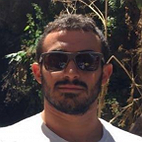Earlier this year, Kusama made history with the launch of the first-ever parachain slot auctions. The first batch of five auctions successfully concluded throughout June and July, and the winners are currently testing their projects on the Kusama canary network.
Designed to enable the most deserving projects a chance to leverage Kusama and Polkadot’s network architecture, the parachain slot auctions follow a modified candle auction format wherein each auction lasts no more than one week. The winners of the auctions are assigned a total slot duration of up to 48 weeks, divided into eight lease periods of six weeks each.
The second installment of the parachain slot auctions kicked off on September 1st. All five rounds will follow the same format as the previous rounds, encouraging some of the most promising blockchain projects to battle it out for their chance at the limited slots.
Users Vote Via Staking To Support Promising Blockchain Projects
Polkadot’s canary network Kusama is the experimental version (a pre-production environment) that allows developers to test and validate new decentralized applications (dApps) and blockchain projects before moving to the Polkadot network.
Kusama uses the identical code structure as Polkadot, delivering an immensely interoperable, scalable, and flexible testing framework alongside low staking requirements to help dApp developers test every aspect of their product in real-world scenarios.
To better understand the importance of Kusama parachain auctions, it is critical to understand the concept of parachains and relay chains. Relay chains serve as the main network where transactions are finalized, and parachains are custom blockchains connected to the relay chains. At present, both Kusama and Polkadot support up to 100 parachains.
Due to the limited number of parachain slots, the team behind Polkadot and Kusama introduced the Kusama parachain slot auctions as a fair method to decide which new projects will be connected to its relay chain and leverage the distributed computing power of the network. Slot auction winners are determined based on the number of KSM (Kusama’s native token) staked by participants.
Parachains that win a slot in the auctions will be first deployed on Kusama to ensure all functionalities and features are working as expected before extending to Polkadot. This auction is supposed to create a sense of scarcity and competition, which will ensure that only active projects (parachains) with well-planned tokenomics and public backing win a coveted spot.
An Up-And-Coming Project To Monitor During Auctions Six To Ten
While many promising projects are competing for the limited slots in the upcoming auction rounds, Centrifuge, built on Polkadot, stands out from the lot with its Altair testnet. Centrifuge is a decentralized asset financing protocol that allows users to tokenize real-world assets like real estate, royalty payments, and invoices by employing them as collateral to access financing through Tinlake, its asset-backed lending dApp.
Altair serves as the canary network for Centrifuge, similar to how Kusama works for Polkadot. Built on Substrate and almost the same codebase as Centrifuge, Altair will be used to test new features and functionality before deployment on the Centrifuge Chain.
After Altair is live on Kusama, it will bridge multiple chains like Polkadot, Kusama, Ethereum, and Centrifuge to enable cross-chain liquidity. Finally, when all the features are validated, and Centrifuge is fully deployed on Polkadot, Kusama will be used to mint non-fungible tokens (NFTs) alongside testing and financing new real-world assets.
Founded in 2017, Centrifuge is the world’s first real-world asset (RWA) financing platform, built to expand the possibilities of decentralized finance (DeFi). The platform already features the highest TVL (total value locked) within the Polkadot ecosystem.
The project is backed by prominent VC firms and investors thanks to its promising features, fast processing rates, and low fees. Already, the platform raised $8 million during its first seed round in 2018 and an additional $4.3 million in 2020. Centrifuge also participated in the first batch of parachain slot auctions, raising more than 6,000 KSM, further underlining the community support behind the project.
Compared to other projects bidding for limited slots, Centrifuge’s Altair emerges as a prime contender because of its extensive plan of bringing cross-chain liquidity while leveraging both Kusama and Polkadot ecosystems to their fullest potential.


